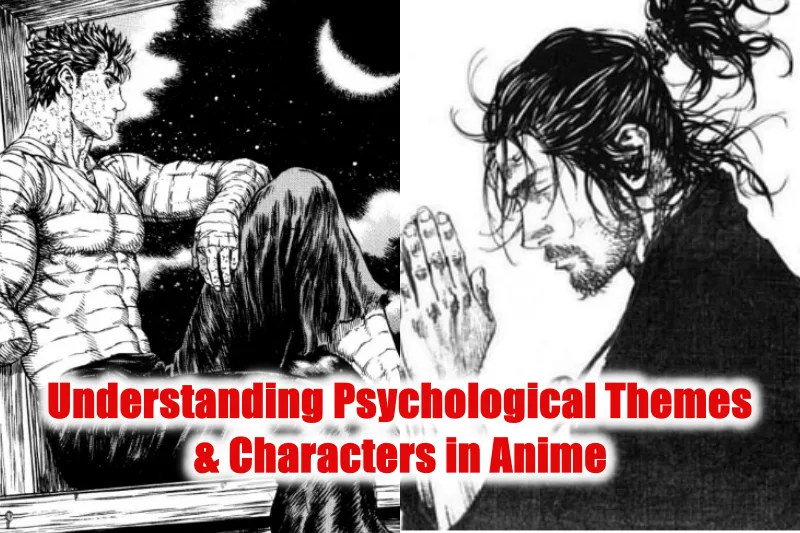Anime as a medium, has been very useful to many people, who were suffering from mental illness or depression. Although there are many other anime, which also serve different purposes, anime has been successful because of its realistic portrayal of daily life today.
It also has a lot of psychological impact on many people, due to the specific themes each anime deals with. So, today, we will be talking about all of the psychology of anime, and how it has affected us.
Along with that, we will also be providing examples of realistic characters and situations, which were perfectly depicted in anime. The psychology of anime isn’t to be underestimated, as it had helped many people.
This is also a very vast subject, so make sure to stay tuned till the end.
Understanding Psychological Themes & Characters in Anime
First of all, there are vast themes, which most anime deal with. From relationships, personal growth, trauma, and identity, we have seen a lot of characters, who have dealt with these struggles.
And the best part about this is that most of those struggles and situations are real. Many of us might have dealt with similar situations before, or we might be dealing with those kinds of situations soon.
Now, let’s talk about all of those individual aspects in detail.
1) Relationships
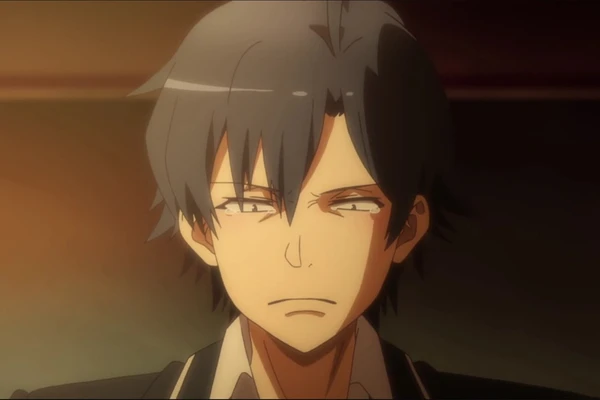
This is a pretty great deal in many slice-of-life anime series, where we have seen characters struggling to form relationships with others. Either due to past trauma or other reasons, some characters also prefer to stay lonely.
Doesn’t this sound similar? It is true that maybe some of us might have been at this same point, at any stage in our life. Either the character was rejected by people, or the character had rejected the people around him.
But, at some point or the other, we are bound to crave relationships, just like many other anime characters did. So, we will be talking about a character, and analyzing his relationship aspect in detail.
The most common example over here is Hachiman Hikigaya. We all know him, as a genius intellect kid, but uses it for the wrong purposes. Many of us might even think he is edgy and unlikeable, at first glance.
Especially with the self-sacrifice he does at times, this opinion is hardened. But, why does he do it? He knows that he has no friends or fame for him. Hachiman doesn’t know of any better way to fix things, other than to blame himself and bomb his reputation.
Is his method successful? Yes, it has been successful in helping some characters, but it never helped Hachiman. Slowly, due to the need to form relationships with the people beside him, he started to change.
He accepted that he wants something real, and this is a big move, for a loner like Hachiman. What motivated him to do this? The people beside him, who care about him, constantly keep knocking some sense into him, and he starts changing.
And finally, at the end of the series, Hachiman could proudly say that he has friends he could rely on now. He also has a girlfriend now and is enjoying the same youth which he despised at the start of the series.
2) Personal Growth
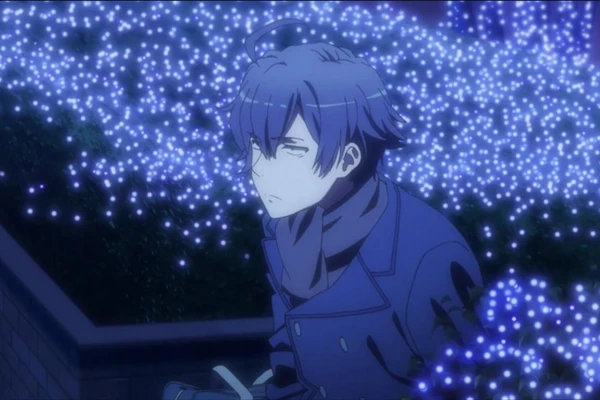
Do you ever find yourself getting stuck at the same point, and being unable to move forward? This specific situation has also been dealt with in many other anime series. Even in this situation, we can talk about Hachiman Hikigaya from Oregairu.
Hikigaya thought that youth and relationships were just boring, and stayed on being a loner. However, fate had a different ending for him, and he was introduced to Yui Yuigahama and Yukino Yukinoshita.
For most of the series, he stayed with his stubborn opinions. And, this had even made some of the people who care for him get angry, and some others have even cried on many other occasions.
But, he does realize that all of his loner thinking and attitude would only get you so far. He even understood that he also craved relationships, just like any other normal human being would.
Even though it took many struggles and a lot of time for his change, his personal growth was reflected, by the end of the series. Just like that, change and personal growth is a very slow process, which takes time.
This anime tries to convey that all of your wrong emotions and ideals will eventually change after meeting the right people.
3) Trauma
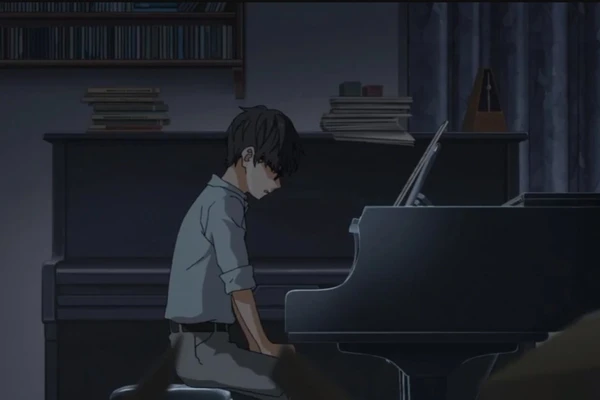
There are some situations in our life, which we can never forget or escape from. We can recognize some of our personal trauma experiences, which make us feels angry, depressed, and many other things at the same time.
We might have even quit our favorite things, during times like these. And for this, we have a perfect character called Kousei Arima, from Your Life in April. He had suffered through trauma one too many times.
Due to this, he also quit his favorite piano at a very young age. This is yet another similar and realistic portrayal of trauma. And when he grows up, he also finds himself unable to hear the voice of his playing.
Does this stop him from playing? No, due to his friends and Kaori, he still tries to relentlessly play the piano. Trauma just looks like an unsurmountable wall at times, but it is surely not impossible to get over it.
Just like how Kousei had demonstrated his ability to surpass it, we all can do the same too. His trauma, further boosted his confidence, and emotions, after Kousei got over what was holding him down.
Even if he was in a very bad situation, he still managed to pick himself up. This is yet another life lesson, that anime teaches us.
4) Identity
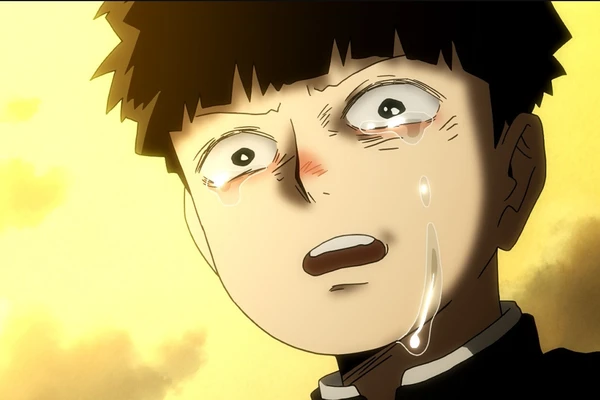
Ever felt like you don’t know what you are going through or becoming into? Fret not, because there are quite a few examples of realistic character portrayals, who went through similar stuff.
If we take a look at Shigeo Kageyama in Mob Psycho, we also see how unstable he is. The whole point of the Mob Psycho series, was for Shigeo to find his own identity, after having to compress his emotions for years, due to his powers.
Shigeo had to always compress his emotions because he would turn into a monster when he was emotionally unstable. And due to this, he also lacks some of the basic human emotions.
All he ever tries to do now is to try and propose to Tusbomi, his childhood friend. Due to his nature, he does not have any personal identity at the start. However, he also gradually started changing, after he met friends and allies.
He soon found himself surrounded by people, who cared about him. But, Shigeo’s biggest rival is himself, he needs to conquer himself before he can change. And, he does manage to do this.
At the end of the series, he realized what he wants to do, and had even formed an identity for himself.
And finally, all of these characters have made us emotional, and some have even made us cry at times. Why is this happening? It is because we have been in the same situations, and can relate to their problems.
This invokes a sense of empathy and emotions in us, for those characters. We also begin to identify a few characters as our favorite ones, and we can attach to them emotionally as well.
Aside from these, there are still a lot of other various emotions, which anime as a medium has tackled. They go through similar difficulties, emotions, and challenges as we did, which makes us identify ourselves in each of these characters.
We insert our values and personalities, into those characters we are so fond of. This shows how great the psychology of anime is, and how it has affected us, unbeknownst to us.
Anime’s Impact on Emotions and Empathy
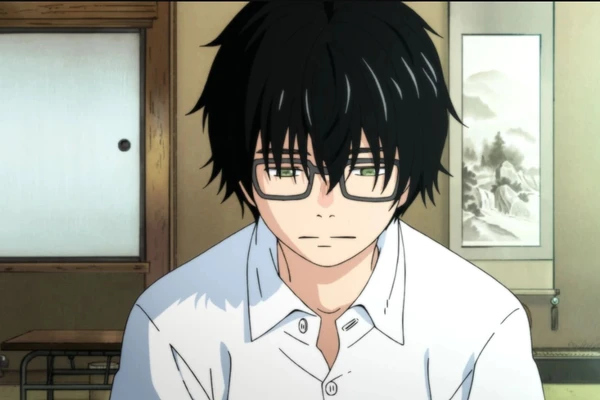
Now, we will be talking about how the psychology of anime invokes emotions and mostly empathy inside of us. All of us, at some or the other point, have been deeply connected to an anime character, and we can also understand what they are going through.
How is this phenomenon possible? Let us talk about this in detail, with an example of Kiriyama Rei, the main character of the best Slice-of-life series, March Comes in Like a Lion.
This series is all about personal struggles, growth, and many new emotions which the character goes through. Initially, he is a depressed loner kind of guy, who had nothing but Shogi to his name.
We also see many realistic portrayals of his struggles, through various scenes in the anime. The animation and soundtrack of the show also strengthen this aspect and make his depiction even more realistic.
When we go through every scene, we can even understand his emotions, and what he is thinking. This is just because, we find his character so realistic, we connect to him on an emotional level.
If we just understand a character fully, we become emotionally attached to them. We also find ourselves understanding their struggles, as well as their emotions. All of this happens subconsciously without us knowing.
That’s why, sometimes we shed a tear about some of our favorite characters before we even know what happens. And, adding in the various other characters and storytelling in this anime, we are easily connected to this series.
Aside from Rei, there are a lot of other relatable characters and situations we see. The quirky animation, which subtly references the emotions of the character, is also a huge help in this.
Adding in all of these aspects, we see ourselves going through a range of emotions, similar to how the character did in the series. This is just one example of a good series, where the psychology of anime invokes empathy inside of us.
Influence of Fan Culture on Psychology
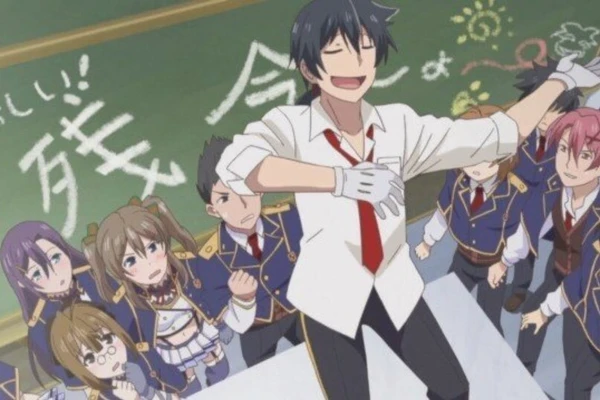
After we find an anime series we love, don’t we want to talk more and more about it? That’s the similar thinking of many fans, and is the main reason, we have a lot of different anime fandoms now.
Talking with all those other people, makes us feel like we belong here. Especially, talking about our favorite series with fellow fans invokes a feeling of belonging too, among us.
The psychology of anime in fandoms is very simple, it is to just interact with other people. This is also another way of personal growth, for many people. Sometimes, you might end up being depressed and stay as a loner, due to some issue.
But, soon you find an anime that you relate to and understand that you can get past bad things too. Watching your favorite series also automatically makes you want to interact with other people, who also like the series.
This way, you have effectively managed to flip around your depression and find people you can have fun talks with. The deep connection between a character and a series is also the reason, you find yourself defending the series, when someone hates it.
This also means that you have unlocked new emotions, like a passionate attachment to specific series and characters. Because you connect to them on an emotional level, you can do this.
The more you talk about the series, you also find yourself becoming a member of a fandom. Further, more interactions will only lead to the rise of good communities, and will also give a sense of belonging to many people.
This is also how many other people manage to get over their introverted habits and find a place where they can freely interact. The psychology of anime is always a very great subject, which applies to numerous emotions.
Anime and its Reflection on Present Society
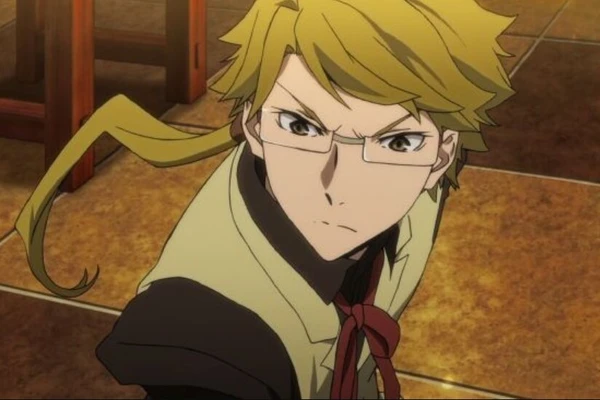
In anime, we can also see many realistic portrayals of society and norms. One major example of this, is Kunikida Doppo, a side character from the famed Bungo Stray Dogs series.
We knew from the start, that Bungo Stray Dogs was a very realistic series, which had many other broken yet realistic characters too. The author himself stated that this series is like oxygen for people, who need these stories to survive.
It also deals with many other crucial aspects, which makes the series so popular and loved. It resonates with many audiences, due to the wide range of realistic characters in the series.
Coming to Kunikida, he is a man of his word, very disciplined, and also holds justice above his own life. These are mostly the kinds of people, which we can see nowadays, who care about societal norms more.
Kunikida does the same, and he abides by these rules so that he can protect innocent people. He never does stray out of his norms, and discipline, and had never done a thing that went against his sense of justice.
The series also talks about his character in detail, and how he tries to uphold all those values. Even when faced with an unsurmountable foe, he still values his justice more and is ready to sacrifice his own life in the process.
This shows how the psychology of anime, has even realistically portrayed the value of societal norms. It also manages to depict many other psychological challenges such as these, which shows how good anime medium is, for conveying important messages.
Apart from this, we also see many other series, which have cultural context too. In this specific series, we see most of the characters, are dealing with one or other psychological problems.
And, there is a lot of cultural context added here too. Because the names of the characters in the series are of the most popular authors. Moreover, their abilities are also the names of the famous books of these authors.
Many incidents of these real-life authors are also referenced in the series many times. For example, Dazai, Oda, and Ango were friends in real life too, and used to visit the Bar Lupin. The same bar name was also referenced in the Light Novel, by Dazai.
The real-life Doppo Kunikida was also a teacher, which was also mentioned by Dazai in the series. The rivalry between Atsushi and Ryunosuke, the suicidal tendencies of Dazai, and many more, were some of the real-life incidents which were referenced.
This proves that anime could also include cultural context, and depict it along with psychological problems. For now, this is the end of our article which talks about the psychology of anime. For similar content, check our posts here.
Do small things with great love.
Follow us on Twitter for more updates.
Also Read

Eswar Keshav is an ardent anime fan for more than a decade. Along with this, he also has been following anime and manga updates for years. He is also enthusiastic and passionate when it comes to writing about his favorite things. Combining his love for writing and his love for anime and manga, his articles speak of his love for the genre.
